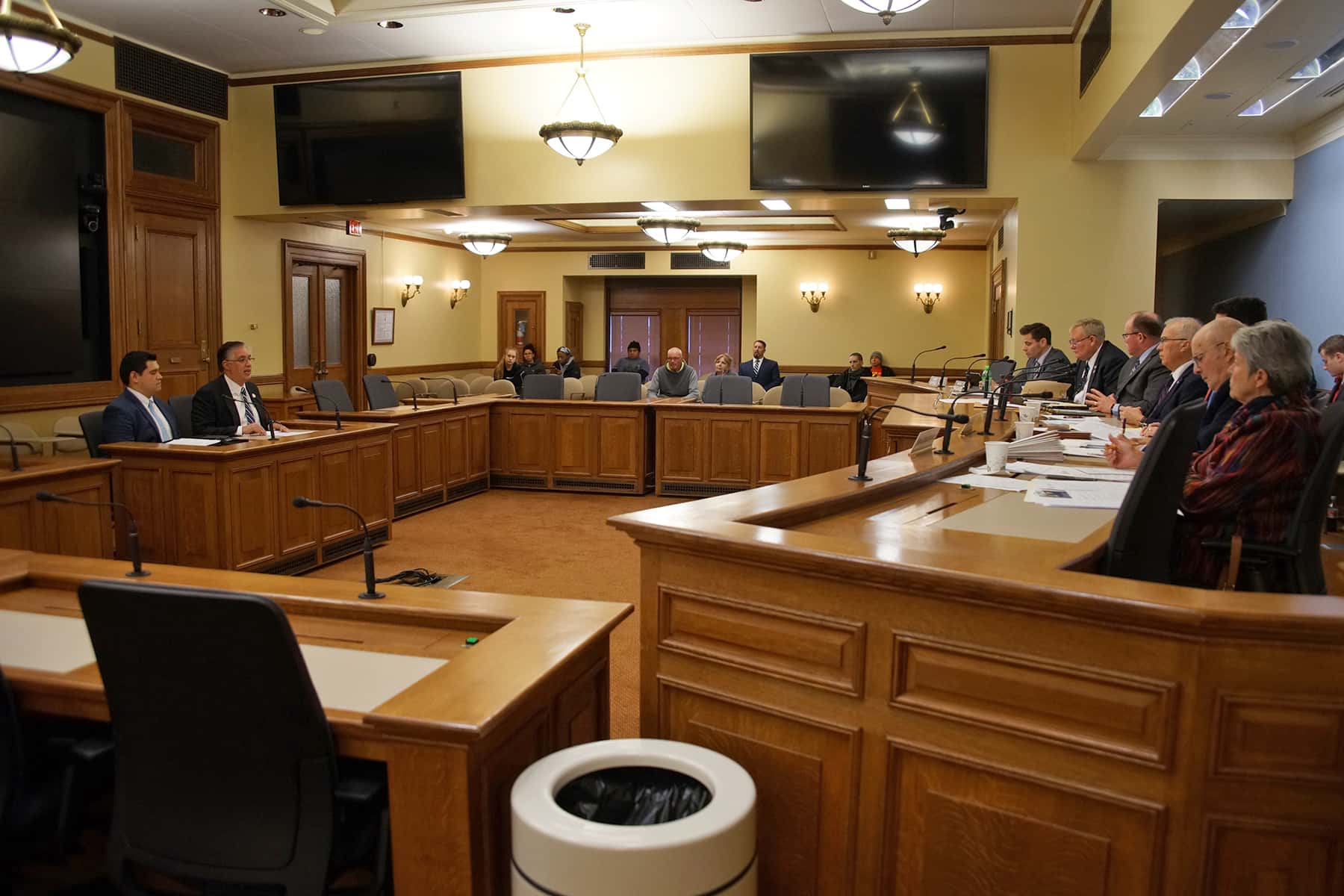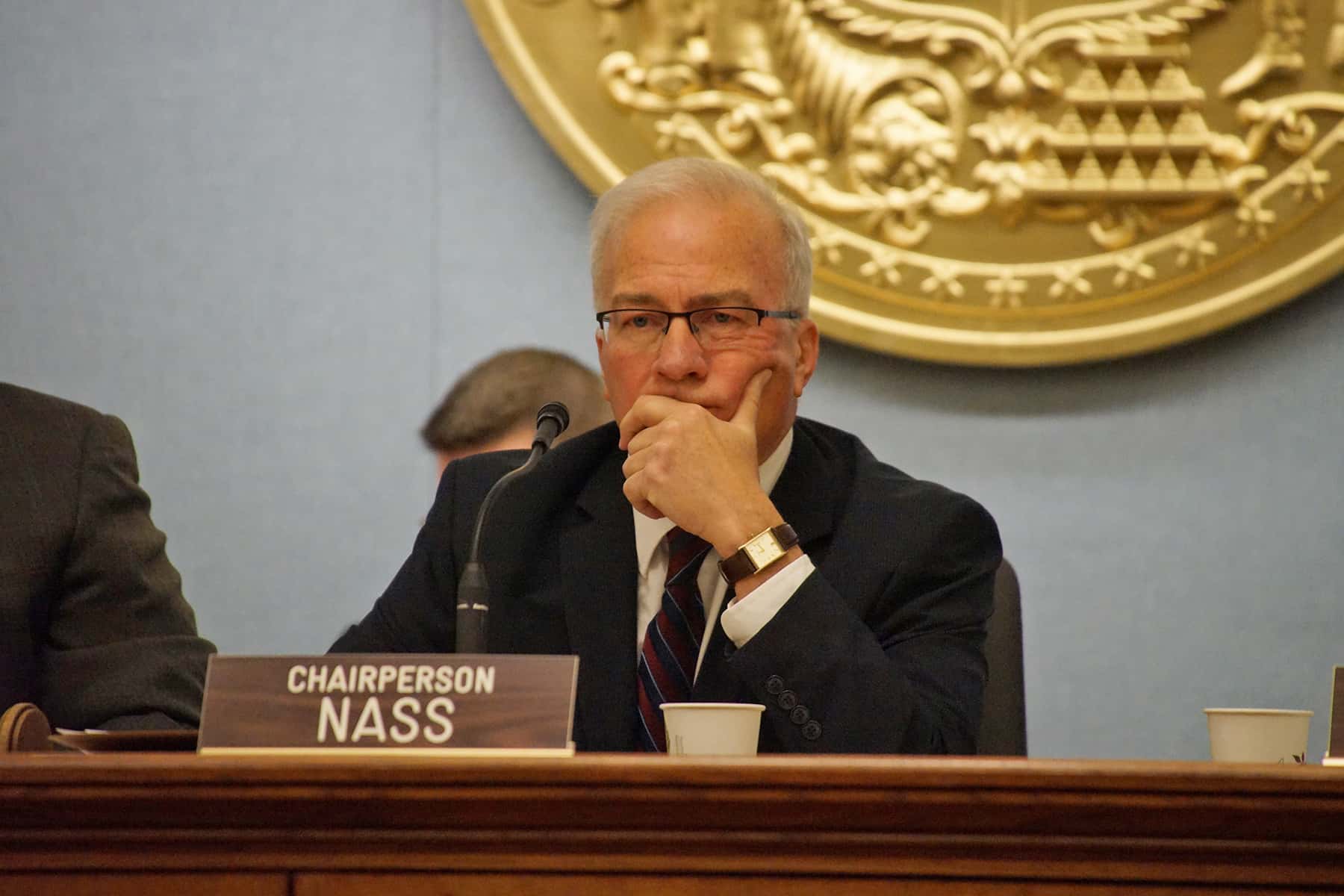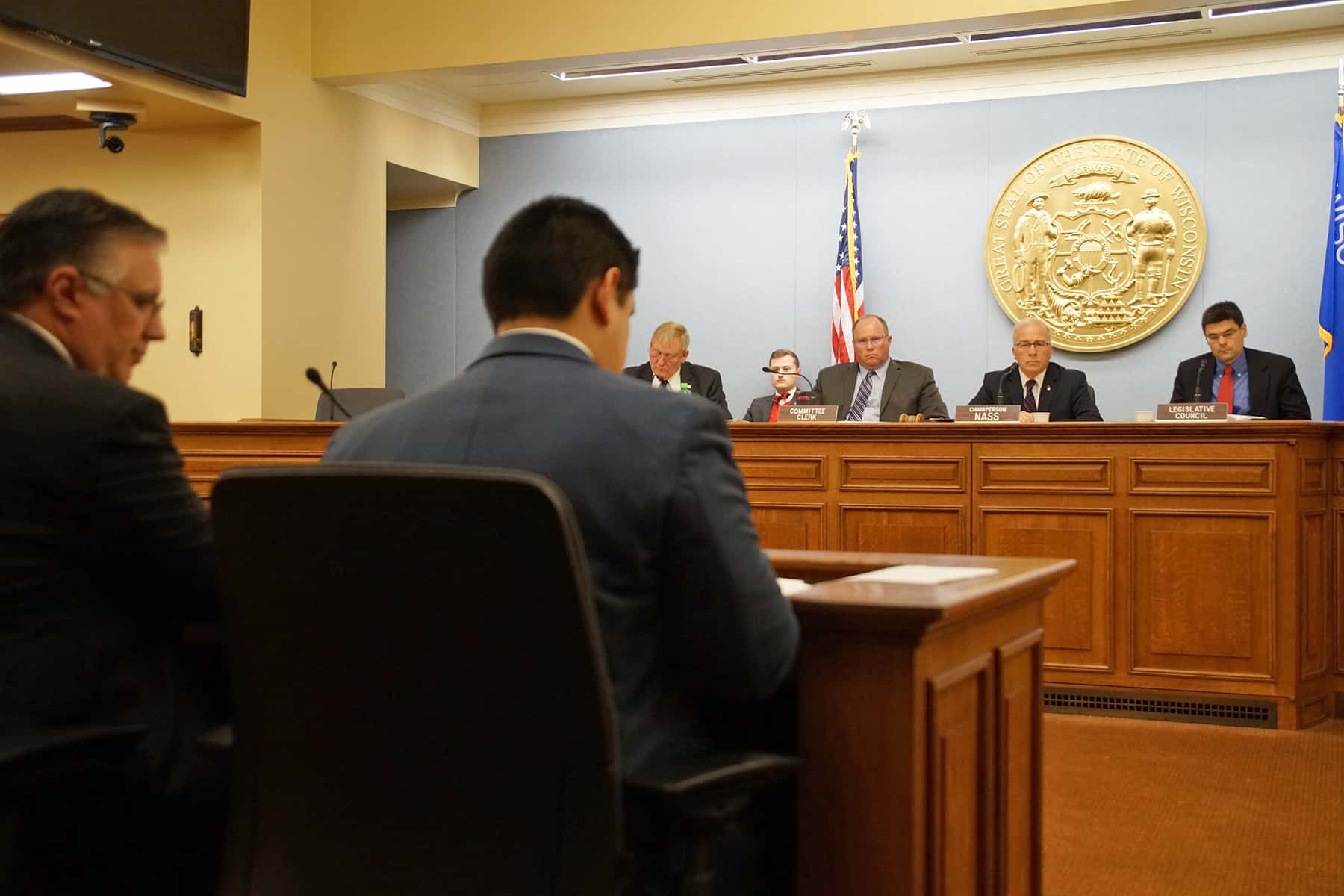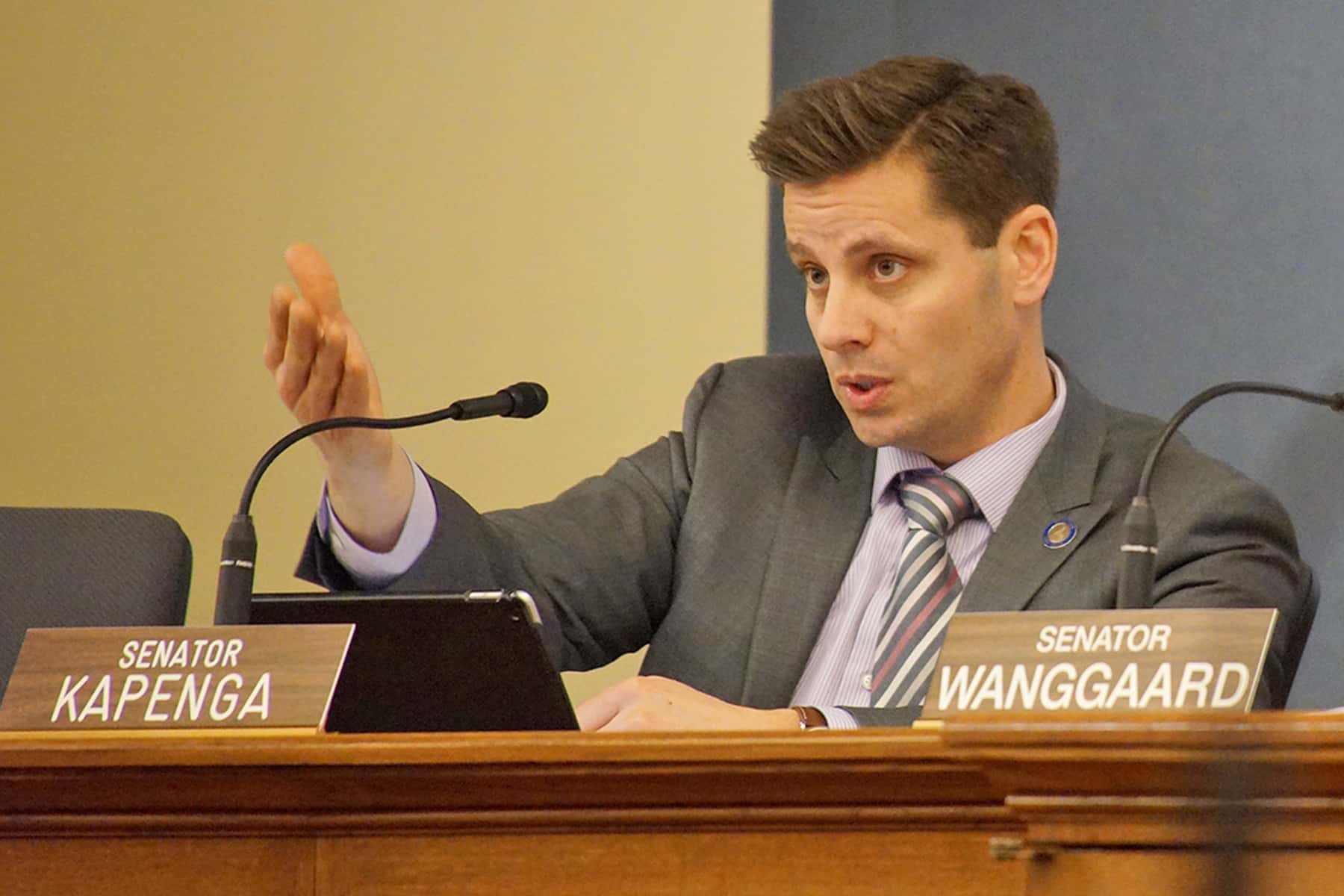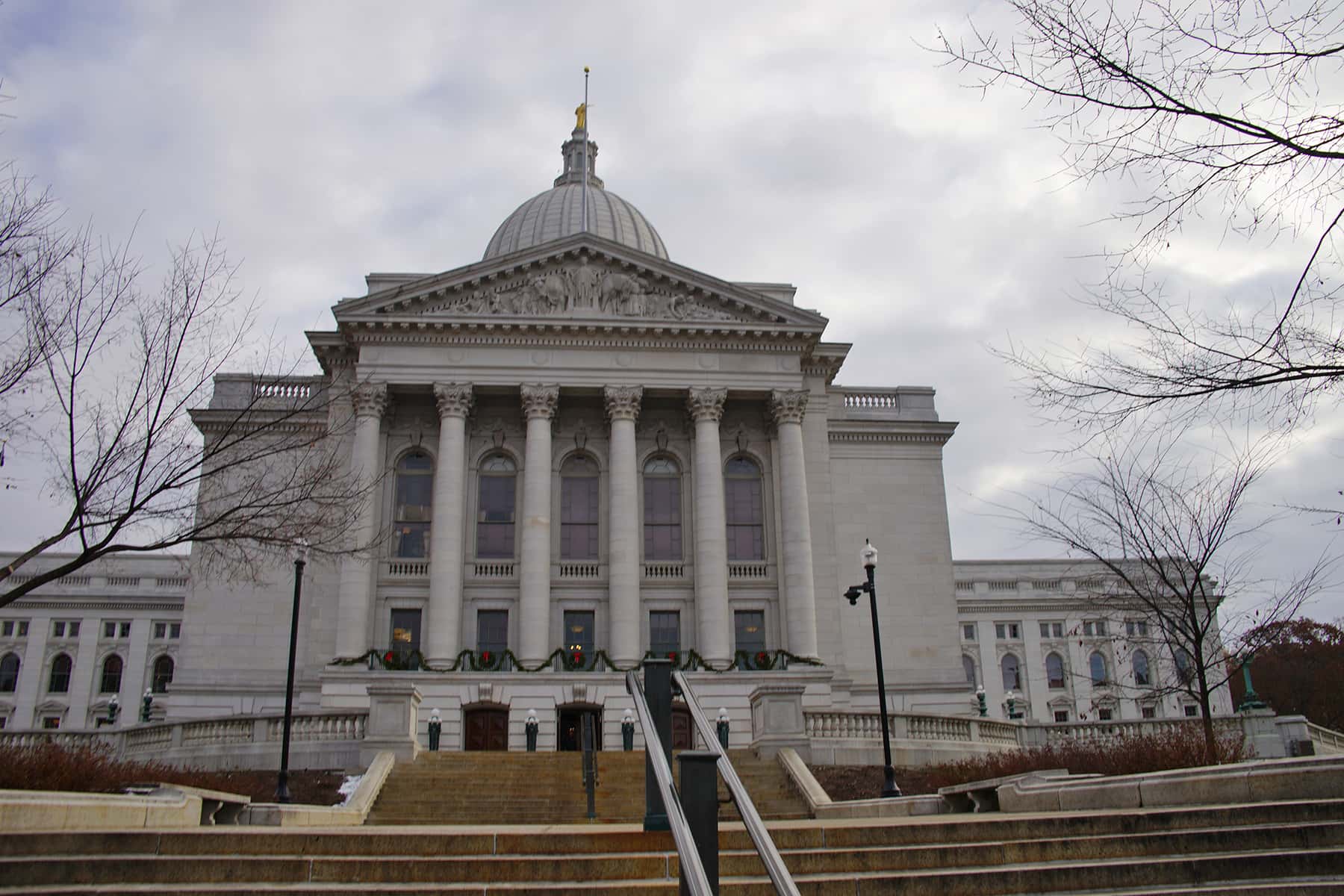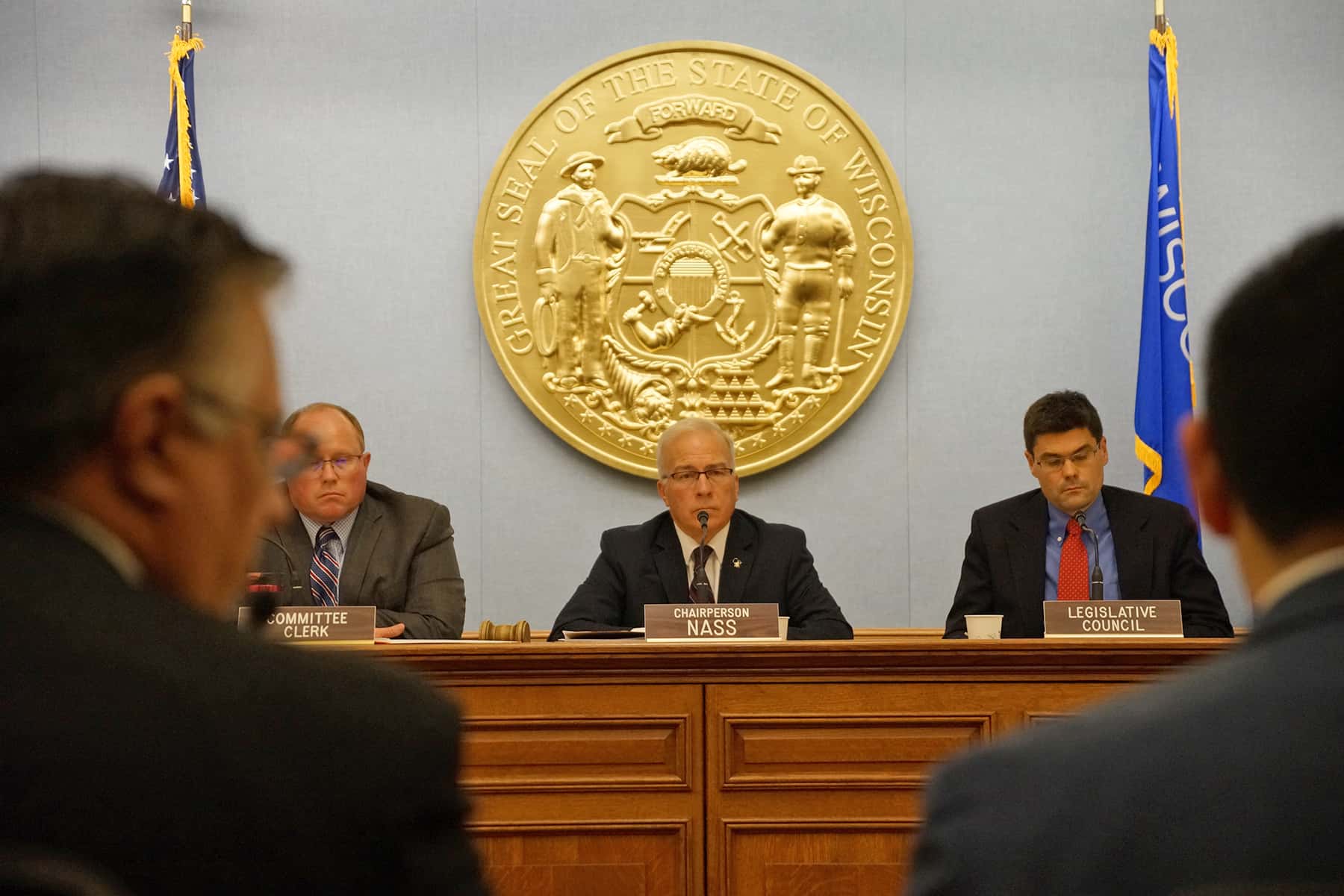
Senate Bill 151, a legislation proposal that failed previously in 2011, 2016, and 2017, was rejected by former Republican Governor Scott Walker. It was recently resurrected yet again by several Republican State Senators.
The measure seeks to forbid Wisconsin municipalities, with a targeted focus on Milwaukee, from becoming “sanctuary cities.” The result would compel local law enforcement cooperation with federal immigration agents, without taxpayer compensation and with economic penalties. In effect, it would federalize local police with extrajudicial powers and no oversight.
The State of Wisconsin’s Senate Committee on Labor and Regulatory Reform held a public hearing on December 17 to take testimonies in support and opposition of the proposed legislation. Many individuals who gave statements said that one immediate affect of the bill would destroy the relationships between police and undocumented immigrant communities. Milwaukee, in fact, is not a sanctuary city and is the main target of Senate Bill 151 because of its progressive attitude on the issue.
“This bill is anti-immigrant and anti-Latino, plain and simple. Rather than addressing the real needs of our immigrant community, Republicans are pushing bad public policy that will harm the relationship between law enforcement and the communities they protect. Victims of crimes will be afraid to reach out to the police, which will leave victims vulnerable and help criminals avoid the consequences of their crime. This bill will make many feel unsafe and targeted in their own communities,” said JoCasta Zamarripa, State Representative of 8th Assembly District. “This legislation is being pushed as an anti-immigrant talking point. Republicans want people to fear immigrants, who actually commit fewer crimes than American citizens. They are using hate for political gain. “We should focus on solutions that support law enforcement and build safer communities for all Wisconsinites. We should not use legislation to stoke fear and hate.”
The bill specifically states: “If a court finds that a political subdivision has failed to comply, the Department of Revenue must reduce the political subdivision’s shared revenue payments in the next year by $500 to $5,000, depending on the political subdivision’s population, for each day of noncompliance.” Additionally, “if a court makes such a finding, the political subdivision is liable for any damages caused by an illegal alien,” which punishes whole communities for having sanctuary policies.
“The word sanctuary means to give people a place to rest, a place to feel connected, and welcome, and safe. As many congregations around the state are getting ready to celebrate Christmas, I am appalled that this is a time that we would say we do not want to provide sanctuary for some people in our state. It is really disappointing that this is the moment some of our legislators choose to introduce this kind of Bill. This should be the time of year where we’re welcoming people and saying, this is a place you can feel safe. This is a place you can feel at home. Our cities are a place where you should be.” – Reverend Jennifer Nordstrom, Senior Minister of the First Unitarian Society of Milwaukee
Sponsor of the bill, State Senator Steve Nass, R-Whitewater, has been insistent that municipalities have no right to defy federal rules. But it remains highly uncertain if sanctuary policies actually violate federal law. The term “Sanctuary City” is a reference to cities that limit cooperation between local law enforcement and federal immigration enforcement, and not a legal distinction. Those limits can include declining an ICE detention request – which is not a binding judicial warrant, or limiting ICE interrogations in jails.
“This is taking place right before the holidays. Families are getting ready to visit with each other, and there should be a sentiment of good will to one another. Instead, Senator Nass and Senator Wanggaard took the lead in reintroducing this anti-immigrant bill,” said Christine Neumann-Ortiz, executive director of the immigrant rights group Voces de la Frontera. “We need bills that are going to affirm the important contributions that immigrants make to our state. “It’s disingenuous to say that if you limit collaboration with immigrants you have lower rates of crime. People will think of all immigrants as dangerous.”
The Southern Poverty Law Center (SPLC), an anti-hate nonprofit organization, has noted that sanctuary policies are unable to block all Federal immigration enforcement. Cities cannot shield individuals from deportation, but municipalities can prevent the Federal government from enforcing immigration law within their city limits. Regarding ICE detainers to hold an individual in local custody, even the agency describes them as requests and not judicial warrants – which they could obtain and municipal law enforcement would have to comply with.
“SB 151 also places local governments at risk of costly litigation by requiring them to comply with ‘any lawful detainer issued by U.S. immigration and customs enforcement.’ The federal courts have made clear that ICE detainers are merely requests, and not mandatory, because the Tenth Amendment prohibits the federal government from commandeering state officials to enforce federal law,” said Steven Monroy, an attorney with the Mexican American Legal Defense and Educational Fund. “SB 151 also makes it likely that local police will be compelled to make arrests or extend detention longer than legally authorized. The local government will have to cover the cost of such detentions and federal policy generally bars reimbursement for compliance with ICE detainers. Additionally, the local government could be liable for unlawful detention despite a detainer request and ordered to pay hundreds of thousands in damages and legal fees.”
The legislation would also allow any resident to sue their local government for not complying with federal immigration laws, and empower employees of a local government to question the immigration status of individuals. Proponents of the bill say it would help make Wisconsin communities safer, but opponents like Abby Swetz with the advocacy group End Domestic Abuse Wisconsin disagree.
“Local law enforcement needs cooperation from local immigrant communities. Local residents serve as witnesses, report crime, and otherwise assist law enforcement. The foundation for this cooperation is often destroyed when local police are viewed as an extension of the immigration system. Survivors of domestic violence refrain from reporting offenses,” said Swetz. “Individuals with key information about burglaries, or escapees from county jails, fail to contact the police or sheriff’s department. It is an unfortunate truth that as immigration enforcement has expanded, the willingness of immigrant communities to interact with law enforcement has declined. Survivors in a 2018 study regarding immigration policy on domestic violence reported, quote, ‘The decision to call the police depended on their documentation status.’ The community at large is safer when even the most vulnerable community member feels safe enough to report crimes.”
Lee Matz
Our mission of transformative journalism means that we are editorially independent. Our staff determines what is important news to report on, and in what voice to speak on issues. No one influences our opinion, and no one edits our editors. We are free from commercial bias and are not influenced by corporate interests, political affiliations, or a public preferences that rewards clicks with revenue.
Your Support Matters – Donate Now
As an influential publication that provides Milwaukee with quality journalism, we depend on public support to fulfill our purpose. Our award-winning photojournalism, columns, interviews, and features have helped to achieve a range of positive social impact that enriches our community. Please join our effort by entrusting us with your contribution.

